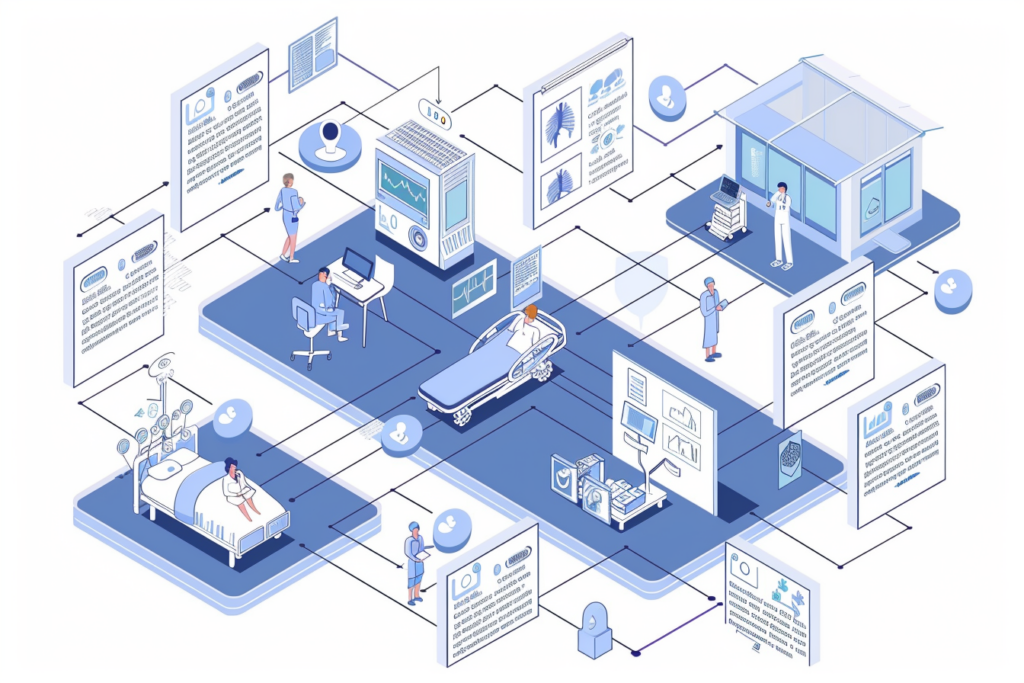How AI can change the way healthcare is delivered
There’s huge potential that the technology can reduce burdens on clinicians and administrative staff, but some challenges, such as gaps in data, remain.

During my two decades working in healthcare, I’ve done everything from managing a health clinic to creating nursing plans, starting an acupuncture business and overseeing billing compliance across multiple academic medical centers.
Across all these roles, I learned the importance of structuring front-end clinical operations to optimize revenue cycle processes and how to build smart systems to drive revenue efficiently.
My eureka moment, however, came while working in business transformation at Massachusetts General Hospital in Boston. I was part of a team that trained providers and medical coders how to continuously improve upon integration of clinical care with revenue cycle. Additionally, I worked with technical project teams, testing new use cases with payers to improve the speed, accuracy and success rate of insurance claims in clinically useful ways. During this time, I truly came to understand the potential to turn claims data into meaningful clinical data.
Cracking the code
The large aging population has naturally created a great need for health services that, in turn, significantly increase pressure on health systems, and the number of physicians and nurses required to meet it. However, this deficit also extends into revenue cycle management.
In a survey conducted by PricewaterhouseCoopers and Becker’s Hospital Review, 83 percent of healthcare leaders reported experiencing labor shortages – a number that closely mirrors the 84 percent who stated their organizations were behind on cash collections. Nearly two-thirds of survey respondents (63 percent) expressed their belief that technology is essential to remedy this problem.
Another survey of more than 200 chief financial officers and revenue cycle vice presidents was even more grim from a personnel standpoint, with 90 percent reporting labor shortages in their billing departments. Respondents reported half of their billing roles were currently vacant, while 48 percent admitted they had witnessed patient billing errors because of the lack of experienced staff for coding, claims and reimbursement.
Indeed, the pace and demands of modern health systems are often overwhelming and manual administrative tasks divert provider attention from patient care. When a hospital system lacks the requisite coding workforce, even more of the medical coding responsibility can fall to the provider, contributing to burnout and frustrating payment cycles between providers and payers. I’ve seen this dynamic play out time and again.
The application of artificial intelligence (AI) can reduce the burden on providers and their health systems, which has continued to increase exponentially. At the same time, advances in AI techniques make it possible to enrich frequently unreliable medical claims data with highly dependable, clinically comprehensive data. Key data insights buried in the electronic health record (EHR) can be more accessible, searchable and useful for clinical purposes such as narrowing down a diagnosis or informing a treatment plan.
AI has emerged as a transformative tool to help hospitals and health systems discern which tasks can be automated to free up medical coding staff time to work on more complex cases and relieve providers of administrative burden to focus more time at the bedside.
Addressing data gaps
The biggest problem for AI companies seeking to help health systems maximize clinical value is data gaps. The healthcare industry has several point-to-point solutions that serve a narrow purpose, such as reducing denials or measuring infection rates that aren’t captured in a particular system because of these gaps.
Every health system gets operationalized by fine-tuning their clinical system to see how quickly they can see patients, determine who is most in need and efficiently capture relevant information for clinical and claims purposes. Health systems are constantly grappling with the age-old iron triangle of increased access, high quality of care and decreased cost.
Machine learning and other artificial intelligence methods such as large language models and natural language processing can help bridge the gap between the clinical side of care and the administrative side. Deployed correctly, artificial intelligence can help practices refocus clinicians on clinical care and enable technology to review and translate medical records for reimbursement, clinical registries, population health and many other use cases.
Today, across healthcare system revenue cycle management nurses, residents, providers and medical coders are looking at charts to extract data in a very specific way for particular use cases. They're doing it in a similar manner but for different purposes.
In the future, artificial intelligence software will provide meaningful access to the codes generated by any interaction with a provider.
If we take a holistic approach to implementing AI, we have a unique opportunity to leverage high quality data for use cases that elevate healthcare far beyond the revenue cycle. AI won’t only address labor shortages; it also will enable health system professionals to do their jobs better, positively impacting the patients under their care.
Lindsey Reilly, vice president of product management and development partnerships at CodaMetrix, has background as a registered nurse and a deep understanding of healthcare revenue cycle and compliance operations. Prior to CodaMetrix, she was the compliance director at Massachusetts General Hospital.